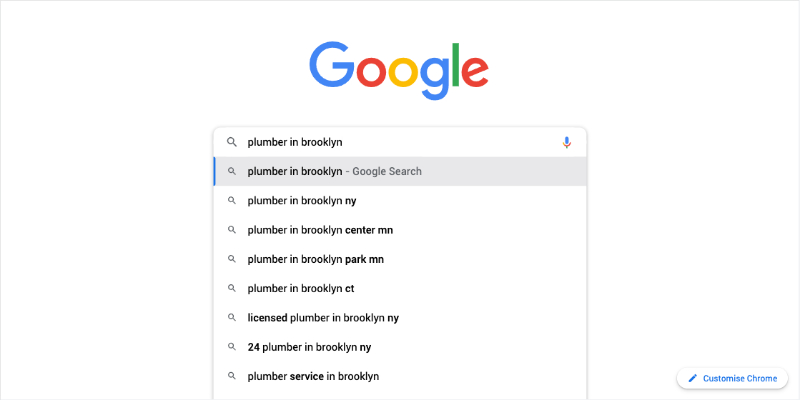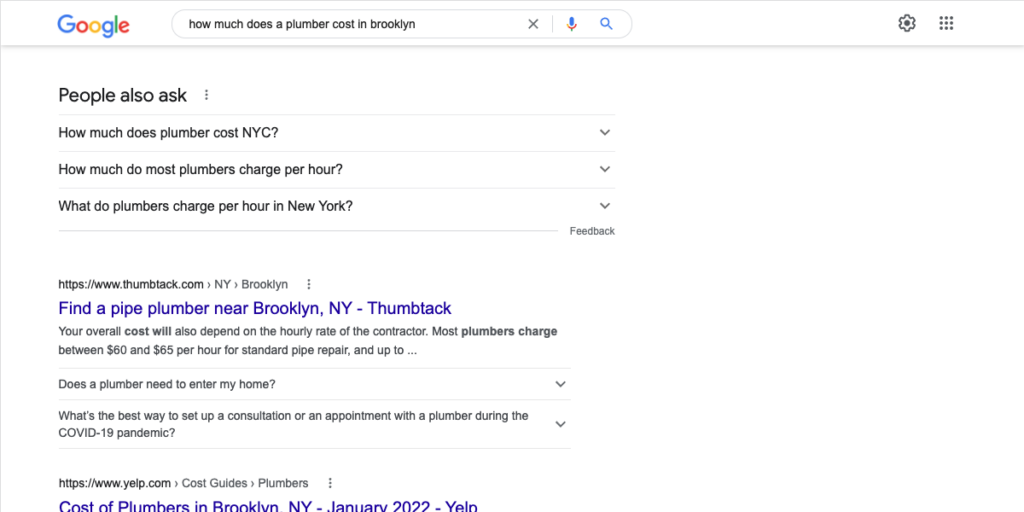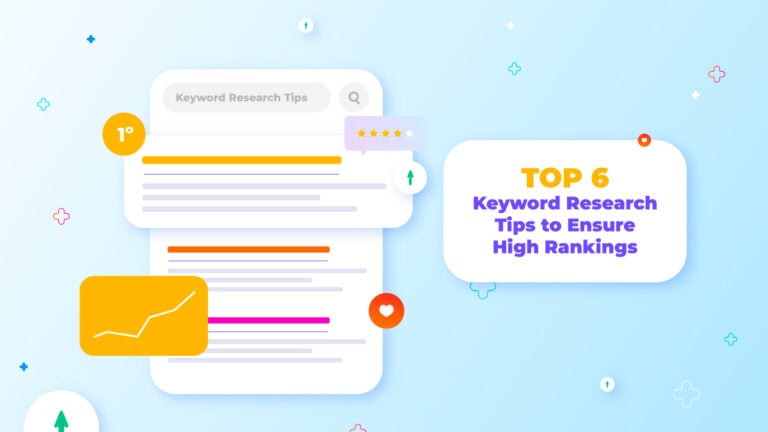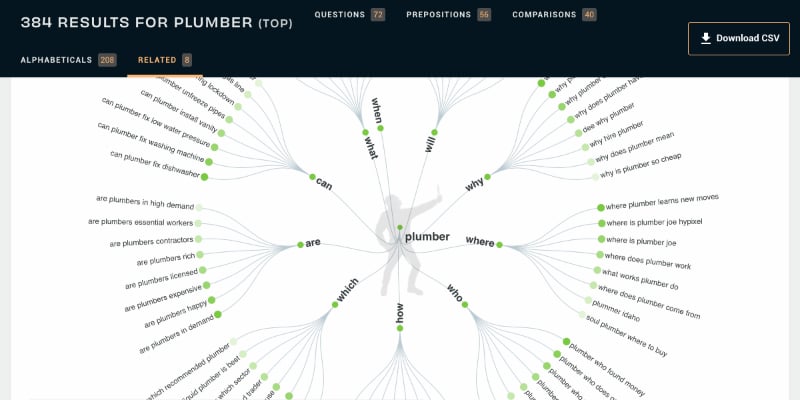For any small business with a website on google, its main aim is to rank as highly as possible on google search results. An extensive list of factors comes into play when it comes to ranking, and using the right keywords is at the top of this list. The only way to ensure you are using the right keywords for ranking is by conducting keyword research.
Keyword research for SEO (Search Engine Optimization) is not a one-off task on your small business SEO to-do list but a continuous process that is important in how your business reaches new leads online.
Here is everything you need to know about keyword research for your small business and tips on how to get it right the first time.
Table of Contents
What is keyword research, and how does it affect rankings?
Keyword research is simply a process used to find and analyze search terms commonly used by internet users when finding products or services online. The goal of keyword research is to use this data to tailor content for SEO and rank highly on search engine results. With proper keyword research, website owners can uncover common queries they can target based on their popularity and ranking difficulty.
With keyword research, small business owners with an online presence can get valuable insight on what their target audience is looking for on google based on the search terms they use. This can inform the content and marketing strategy.
Whenever people go online to search, they are often looking for solutions. With keyword research, it is possible to create structured content that will get in front of the right audience whenever they run searches on google and other search engines. This gives your business or website more traffic and more conversions.
With keyword research, it is possible to create structured content that will get in front of the right audience
Here is how to conduct keyword research to put your small business in front of the right audience, even as you learn more about onsite SEO.
Keyword Research Tips for Small Businesses
Build a list of localized keywords
One of the best keyword research tips for small businesses looking to rank highly in search results is focusing on localized phrases and keywords. This is because most small businesses are interested in attracting customers in their locality.
The best way to use keyword research to reach local clients is to create content targeting localized keywords likely to be used by your local customers when searching online for your products or services.
To conduct localized keyword research, you can start by looking for an ideal keyword that includes your location. For instance, if you run a plumbing business in Brooklyn, your keyword research can include phrases such as plumber in Brooklyn, plumbing services in Brooklyn, or even Brooklyn plumbing.
If your company also serves neighboring localities or cities, your keyword research should include terms and phrases used often to find your services in all the areas you serve. This ensures you target clients in all your service areas.
Look at the keywords your competitors’ target
Keyword research aims to drive traffic to your business or service. To do this, you have to know what your competitors are doing to beat them. One of the easiest ways to make the most of your keyword research process is finding the keywords used by your competition.
Borrowing some of the keywords used by your competition ensures your business attracts the same clientele, thus increasing your chances of attracting more clients. While your business may rank for results on it’s homepage and brand name, if you really want to grow you should build a blog as part of your content strategy and create dozens, or even hundreds of pieces of content to help users find you.
For instance, at UENI you may notice that we have this blog post about creating an about us page on a website. While people who visit this blog post may not be looking for a website builder like UENI when they read the post, the post itself will introduce our brand to them and keep us top of mind the next time they build a new site.
To find keywords used by your competition, you can use Google Ads and search for keywords, including a website, phrase, or category. On the URL bar, you can enter your competitor’s website to find the keywords they use.
Google will give you a list of all the keywords and topics used on the competitor’s website, including competition level and average monthly searches. Clicking on ‘Ad group ideas’ will give you access to a rich list of long-tail keywords you can target.
Take advantage of Google Suggest
Being the most popular search engine globally, Google aims to provide users with the best and most helpful search results. As a small business owner, you can use google suggest to find relevant queries for what most people are looking for when looking for businesses like yours.
Any small business can benefit from using google suggest to find additional keywords. Google suggest is simply the extra drop-down suggestions that appear below the search box when you enter any phrase or keyword on the search bar.
To make the most of google suggest:
- Enter a search term in the search box on google.
- See what the engine lists below the bar as potential similar keyword phrases.
All suggestions are insights picked by google when analyzing user search behavior. This list is updated every 2 to 3 weeks.

Research Negative Keywords
It is advisable to use negative keywords for your keyword targeting strategy. With this strategy, you can take your SEO to the next level.
Negative keywords are keywords you prefer to avoid targeting in your PPC campaign.
Finding negative keywords can help you narrow down on internet users you do not want to target to reach the right ones for your business.
For instance, if you are in the service delivery industry that primarily offers the service for free but want to offer paid packages and membership, the word free can be used in your campaign as a negative keyword. This means that your ads will not show up for results that include the word free for services like yours.
It is possible to add negative keywords to your google keyword planner. Select ‘keyword and targeting’, then navigate to ‘keywords, negative’. Add your negative words, then click on the campaign or ad group. Once you have added the negative keyword, you can be sure that your business will not appear in search results, including the negative keyword.
Check out the “People also ask” section on Google
It is also possible to get keyword ideas from common questions asked by potential customers on Google. One of the easiest ways for a small business to earn a high SEO ranking on Google is to focus its content on answering and addressing the most Frequently Asked Questions and concerns.
The ‘people also ask’ section on google can let you know your target audience’s most commonly asked questions. The section comes up whenever you type in a search query on the Google search bar. This research tip makes it possible for you to find valuable questions that you can answer to reach your target audience.

Find common customer questions
Identifying and answering common customer questions improves your site’s chances of reaching target audiences looking for answers in google and other search engines.
Apart from google’s ‘People also ask’ list, another way of knowing what questions people want answers for includes using free tools like Answer the Public. You can type in a keyword related to your business to get an extensive list of Frequently Asked Questions from Google and other search engines.
The bottom line
As a small business owner, keyword research is the best way to edge out the competition and stand out in your line of work. With these keyword research tips, you can reach above and beyond regular keyword research to access rich keyword opportunities that you can incorporate in your SEO strategy to put your business on the map.
If you need specialized SEO assistance, you can reach to us, and we will not only build your website but also optimize its SEO so that it ranks on relevant searches.










